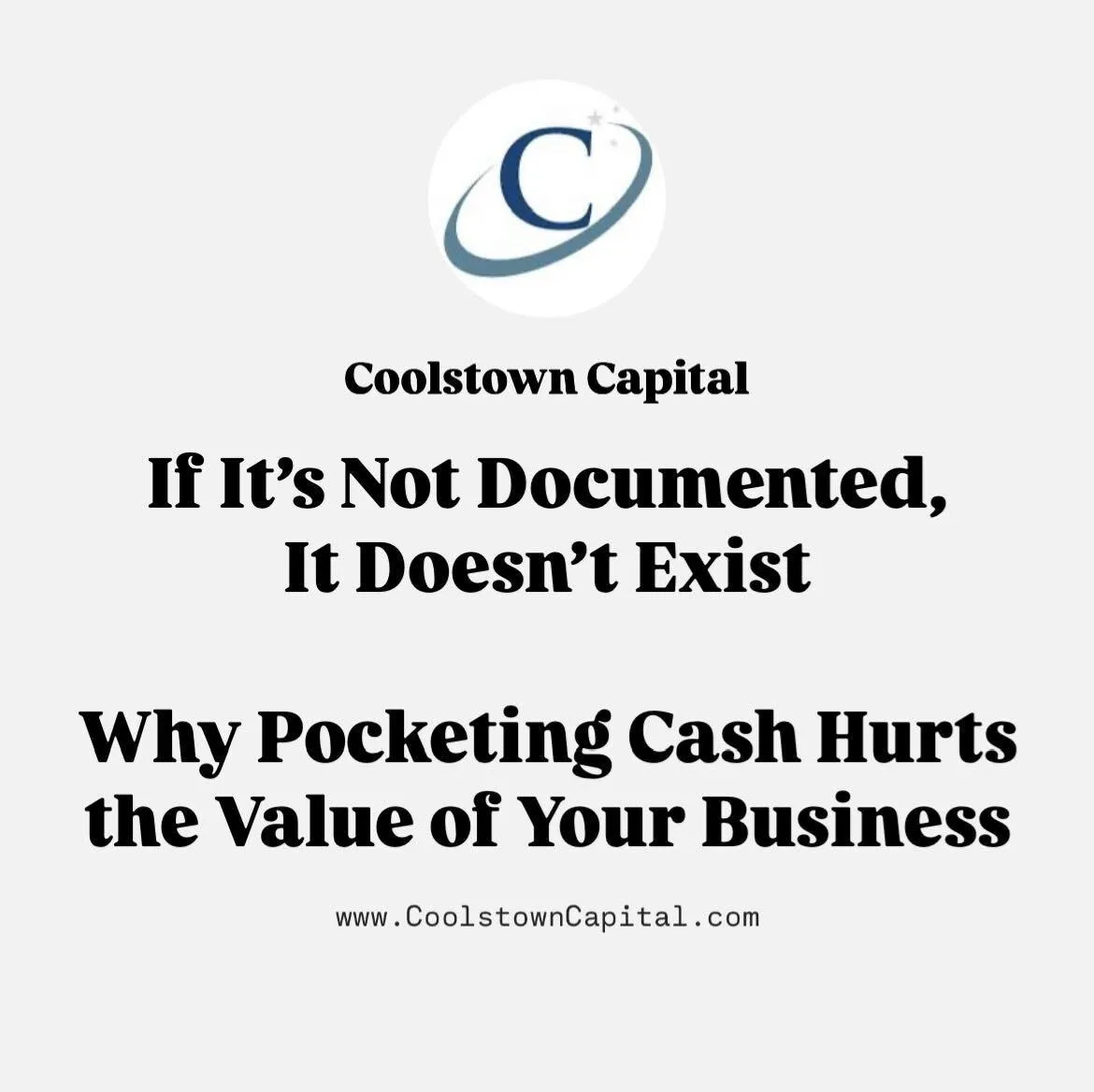
If It’s Not Documented, It Doesn’t Exist
Why Pocketing Cash Lowers the Value of Your Business
You might be making good money.
You might even be taking home a healthy chunk of it in cash.
But if that income isn’t documented…
It doesn’t exist in the eyes of a buyer.
And when it comes time to sell your business, that habit could cost you hundreds of thousands.
When a potential buyer evaluates your business, they’re not relying on gut feeling. They’ll want to see proper financial statements, tax returns filed with Revenue, bank records, and point-of-sale or invoicing system reports.
If the income isn’t officially recorded, it doesn’t count. You might say the business makes more—but if you can’t prove it, it won’t affect your sale price.
Some business owners under-declare income to reduce their tax liability. But while it might feel smart in the short term, it can be financially devastating in the long run. You might save on tax today, but you’ll take a major hit when it comes to valuing and selling your business. Buyers won’t take your word for it—they need clean, auditable proof. And if they don’t get it, they’ll either walk away or offer significantly less.
Let’s run the numbers. Imagine your business generates €450,000 in real annual profit, but you only report €300,000 and pocket the other €150,000 in cash. If you’re aiming to sell at a 3X multiple:
Based on the declared profit of €300,000, your business would be valued at €900,000.
But if you had documented the full €450,000, you could be looking at a valuation of €1,350,000.
That’s a €450,000 difference—simply because the income wasn’t properly recorded. Buyers only apply valuation multiples to what’s provable. They won’t pay for what’s off the books.
This is especially true when buyers bring in their accountants or lenders to do due diligence. If your financials are messy or you hint that “there’s more than meets the eye,” you’ll immediately damage trust and likely lose the deal.
If you’re thinking about selling your business in the next few years, the smart move is to get ahead of the problem. Start declaring all income—even if it increases your tax bill. Clean up your accounts and work with a good accountant. Move your invoicing and sales through proper systems that leave a paper trail. And make sure your books show consistent, accurate profits for at least 2–3 years before you go to market.
The bottom line is simple: if it’s not documented, it doesn’t exist—not to buyers, not to banks, and not to serious investors.
So stop pocketing cash. Start running your business like a sellable asset, not a side hustle. Because the business that’s clean, transparent, and properly documented is the one that commands a higher price, attracts better buyers, and gives you a smoother exit.

